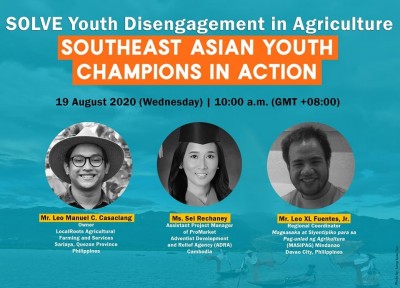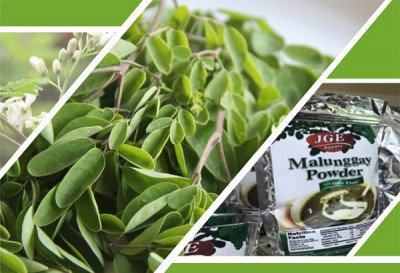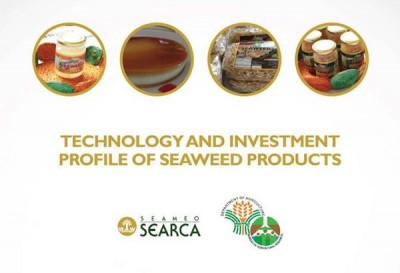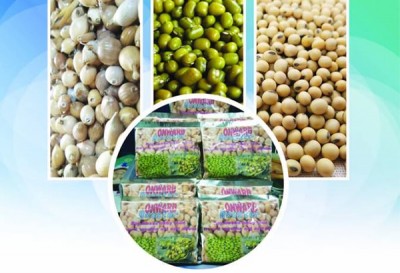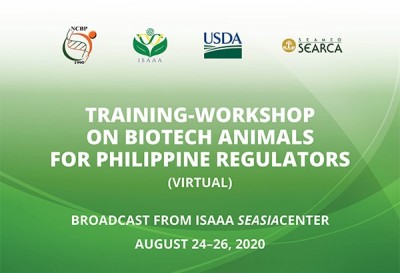SEARCA News
New Country Representatives to the SEARCA Governing Board appointed
8 September 2020
Cambodia and Malaysia have recently appointed the new Country Representatives to the SEARCA Governing Board (GB). The GB is SEARCA's highest policymaking body. It is composed of representatives from each of the 11 member countries of the Southeast Asian Ministers of Education Organization (SEAMEO) who are nominated by their respective Ministers of Education and appointed by the SEAMEO Council President. The new SEARCA GB members are Mr. Ty Channa, Director, Department of Personnel and Human Resource Development, Ministry of Agriculture, Cambodia, and Prof. Dato' Dr. Zulkifli Idrus, Deputy Vice-Chancellor (Research and Innovation), Universiti Putra Malaysia (UPM). Their appointment is for…
Read more
The International Fund for Agricultural Development (IFAD)-funded project Agricultural Transformation and Market Integration in the ASEAN Region: Responding to Food Security and Inclusiveness Concerns, or ATMI-ASEAN, conducted series of virtual meetings to discuss the national road mapping exercise as part of its technical assistance on planning and policy development. This activity has been seriously delayed due to the COVID-19 pandemic. To start, the Southeast Asian Regional Center for Graduate Study and Research in Agriculture (SEARCA) through Dr. Pedcris M. Orencio and Ms. Bernice Anne C. Darvin, Program Head and Program Specialist, respectively, of the Research and Thought Leadership Department (RTLD)…
Read more
SEARCA Photo Contest searches for faces of agricultural innovation
3 September 2020
The 2020 edition of the annual photo contest launched by the Southeast Asian Regional Center for Graduate Study and Research in Agriculture (SEARCA) is in search of striking images of agricultural innovation in Southeast Asia. The SEARCA Photo Contest is open to all nationals of Brunei Darussalam, Cambodia, Indonesia, Lao PDR, Malaysia, Myanmar, the Philippines, Singapore, Thailand, Timor-Leste, and Vietnam. "We are looking for beautiful images that show people taking part in activities that contribute to food and nutrition security, sustainable farming systems and natural resource management, agribusiness for increased productivity and income, enhanced agricultural and rural development (ARD) towards…
Read more
The Southeast Asian Regional Center for Graduate Study and Research in Agriculture (SEARCA) fabricated 18 units of pedal-controlled faucets as a corporate social responsibility (CSR) initiative in the time of the COVID-19 pandemic. Eight units were created for the SEARCA Headquarters and SEARCA Residence Hotel (SRH) and SRH Annex, while 10 units were intended for donation to the University of the Philippines Los Baños (UPLB), Barangay Batong Malake, Maahas Elementary School, and other schools and institutions located in Los Baños, Laguna, Philippines. UPLB, as the first recipient, received three units last 10 August 2020 in front of the UPLB Library…
Read more
As COVID-19 poses a great challenge to the Philippine economy and in the Southeast Asian region, the essence of reshaping agricultural research and development was shared by Dr. Glenn B. Gregorio, Director of the Southeast Asian Regional Center for Graduate Study and Research in Agriculture (SEARCA), at the CEM Webinar Series held on 13 August 2020 via Zoom. The webinar series was part of the founding anniversary celebration of the University of the Philippines Los Baños (UPLB)-College of Economics and Management (UPLB-CEM) with the theme "CEM 2020: Building Economic Resilience in the Time of COVID-19." As part of the celebration…
Read more
The Southeast Asian Regional Center for Graduate Study and Research in Agriculture (SEARCA) conducted its 15th SEARCA Online Learning and Virtual Engagement (SOLVE) webinar on "Youth Disengagement in Agriculture: Southeast Asian Youth Champions in Action" on 19 August 2020 via Zoom and Facebook. This online platform is the final installment of the SOLVE webinar series on youth in agricultural and rural development (ARD) in August 2020. The first installment highlighted the challenges and opportunities for the young, while the second installment tackled agricultural underpinnings on youth empowerment. As a culmination of this month's theme, the third online discussion invited youth…
Read more
Undernourishment and malnutrition have been a long prevailing problem in the Philippines affecting millions of its population. Several technologies were developed to help address these problems. Malunggay (Moringa oleifera)—one of the featured commodities in a Technology and Investment Profiles monograph series published by Southeast Asian Center for Graduate Study and Research in Agriculture (SEARCA)—showcased high potential in combating malnutrition and hunger. Its use and consumption has been promoted by the World Health Organization (WHO) as a low-cost health enhancer in poor countries around the globe. To address the inadequacy of quality food intake among children, especially in areas suffering from…
Read more
Seaweed, known for its many uses, is a versatile commodity that has applications which extend from food to industrial uses. It is a good emulsifier with good water holding capacity, and excellent binding properties. With these qualities, the opportunities for value-adding food technology for seaweed are enormous. The Bicol Region in the Philippines, specifically the province of Sorsogon, is known as one of the country's major producers of seaweeds. In fact, the commodity has been a promising source of income to many in the fisheries sector. The Bureau of Fisheries and Aquatic Resources- Regional Fisheries Research and Development Center (BFAR-RFRDC)…
Read more
A good source of nutrition is crucial in the early stages of a child's life. Having access to nutritious food is essential to their development and there is a variety of baby food in the market. Although in the case of Zamboanga, its manufacturing has suffered losses due to high costs surrounding handling and shipping. This has opened an opportunity for producing baby food products using locally available raw materials in the region. This opportunity prompted the development of soy baby food under the Department of Agriculture-Bureau of Agricultural Research (DA-BAR) funded project "Commercialization and Promotion of Organic Soybeans in…
Read more
Experts tackle animal biotech regulations
27 August 2020
SEARCA together with the International Service for the Acquisition of Agri-biotech Application (ISAAA), the United States Department of Agriculture (USDA), and the National Committee on Biosafety of the Philippines (NCBP) is working together to address key aspects of biosafety regulation on animal biotechnology. "It is important for us to talk about animal biotechnology and how we can enjoy its potential benefits while ensuring that these products are reliable, and safe for both people and the planet. This begins with developing a science-based, credible, transparent, and effective regulatory framework," says Dr. Rhodora R. Aldemita, ISAAA SEAsiaCenter Director. According to SEARCA Director…
Read more
Page 64 of 145





